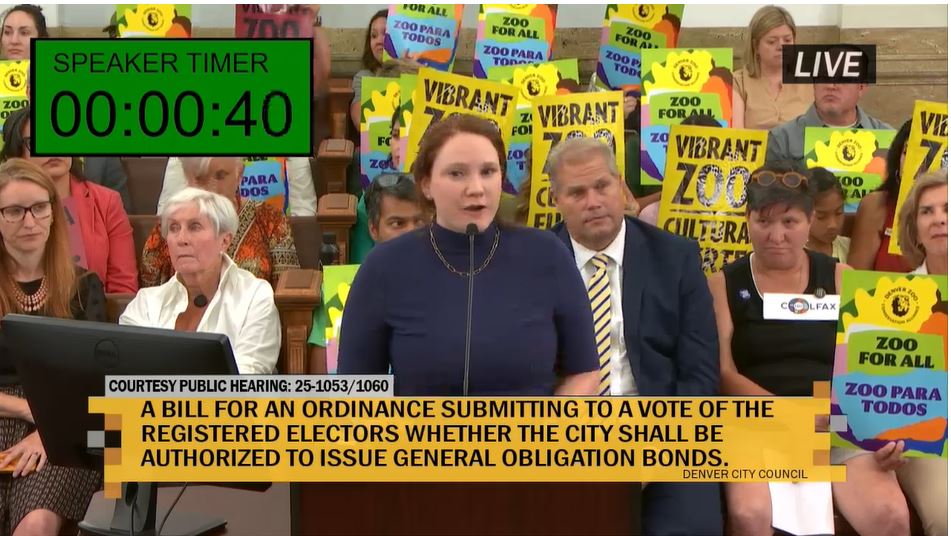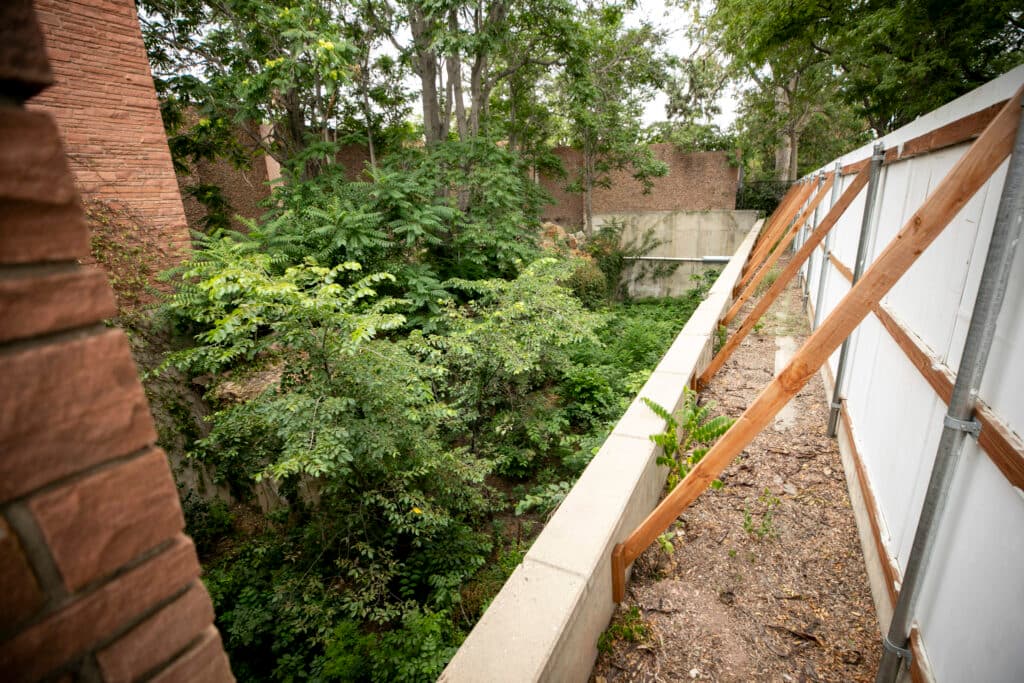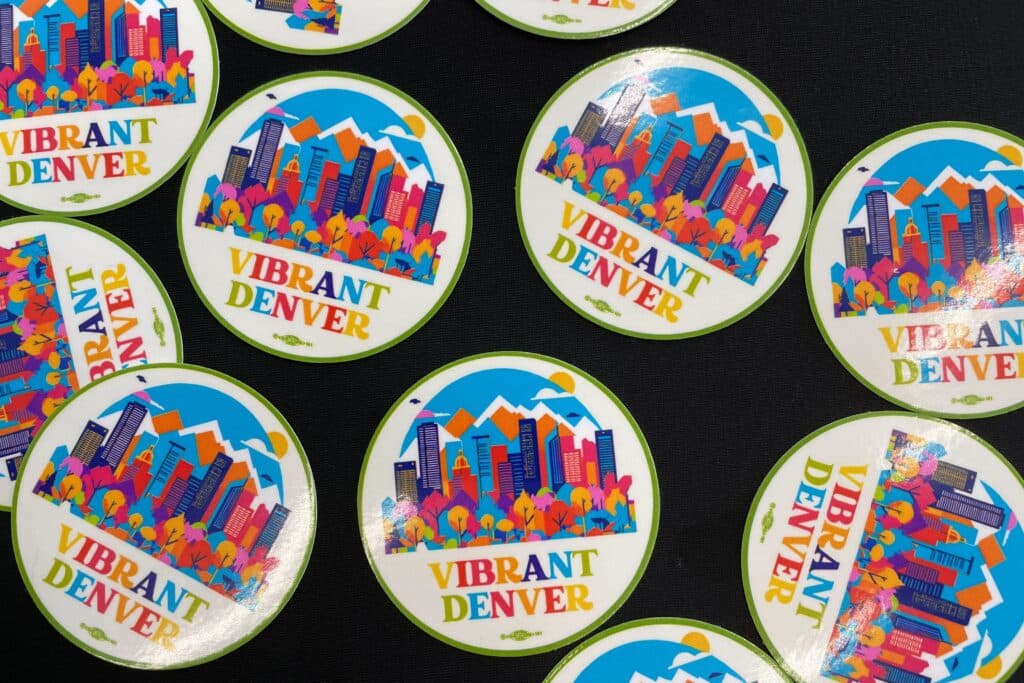Updated at 10:20 a.m. on July 29, 2025.
Denver City Council members made tens of millions of dollars of changes to the Vibrant Denver bond proposal on Monday night.
The council added funding for traffic calming measures for two major avenues, but reduced funding for affordable housing. The final package also includes more funding for an American Indian Cultural Embassy.
The proposal would ask Denver voters this November to approve $950 million of debt funding for nearly 60 infrastructure projects, ranging from rebuilding bridges to building new parks and maintaining cultural attractions.
On Monday, city leaders added:
- $15 million in funding for an American Indian Cultural Embassy, which would be a cultural hub for Indigenous history, culture and events near Denver International Airport. It had only been allocated $5 million previously. Mayor Mike Johnston’s office made the change.
- $18 million for traffic calming measures on 13th and 14th avenues from Colorado Boulevard to Quebec Street. Residents and mobility advocates had requested that change after multiple crashes. Denver City Council made the change.
But the city only has limited capacity to add new debt. To afford the changes, the council reduced an affordable housing funding proposal by $18 million, cutting about a quarter of its proposed funding.
Meanwhile, the council passed over several other high-profile proposals. The council declined to fund new exhibit space at the Denver Zoo, updated election facilities, social housing or a North Broadway bike lane.
It was the conclusion of weeks of high-stakes negotiations over the proposal, with 118 people signed up to speak at a public hearing preceding the votes.

What’s next?
Voters will most likely decide the fate of the spending package this November.
The council will vote next week on whether to put the proposal on the election ballot. They are widely expected to do so, concluding the bond planning process.
Voters would weigh in on five different ballot measures this fall. Each measure would focus on a specific type of project:
- Transportation and mobility, including rebuilds of major road bridges, with $446 million of projects
- City facilities, such as libraries, cultural centers and a training center for emergency responders, with $252 million
- Parks and recreation, including new parks and facility upgrades, with $175 million of projects
- Housing and shelter, including subsidy programs, facility upgrades and funding for affordable housing, with $46 million
- Health and human services, including new and expanded facilities, with $30 million of projects
If any one measure fails, the others could still pass. The city would pay for the projects by issuing bonds, a type of long-term debt. Those bonds would be paid off over decades with existing property tax rates. With interest, the cost will be around $1.9 billion.
The city collects more than $150 million per year of property taxes that can be used for debt services. Property owners in the city pay 6.5 mills of property taxes into that fund, or about $200 annually for a $500,000 home.
Denver voters have historically approved the vast majority of bond proposals. But the debate over this one has been particularly contentious, and it comes just as the city stares down a $250 million budget deficit.
The mayor has framed the spending as a stimulus package. Spending on new attractions and maintaining infrastructure, he has argued, could reignite the city’s economy. The city’s obligations for its previous bonds are slowly winding down, freeing up revenue that could be used to service new debt.
“This is a chance for Denver to control its own destiny and make sure the things that make this city joyful and vibrant are on the front of our priority list,” Johnston said earlier this year.
Property taxes would stay at current levels if voters approve the bond.
Cheers and criticism
The public hearing on Monday was an early preview of months of debate to come.
One person questioned why the Park Hill Park project should be getting bond money when the city doesn’t officially own the land yet. Several people spoke about insufficient support for affordable housing and social housing.
Others criticized the mayor and council for doing too little to advance a connected bike network.
“Without projects like these, the bond is more stagnant than vibrant,” said Rebecca Perez.
Supporters of the Denver Zoo showed up in droves asking for a bigger slice of the pie, though none spoke during the public comment period. Zoo leaders wanted $50 million to build a Latin America exhibit in an unused part of the zoo.

Councilmember Flor Alvidrez tried to amend the bond to include funding for a new Denver Elections facility. Clerk and Recorder Paul López said the project was badly needed to ensure election security and storing public records dating to the 1800s. But with an estimated $43 million cost, the proposal failed.
Council members Amanda Sawyer and Sarah Parady offered competing amendments to fund traffic calming on 13th and 14th avenues.
Parady’s proposal would have brought traffic calming measures to a larger swath of 13th and 14th avenues and shifted funding from maintenance to cultural organizations like the Denver Botanic Gardens and the Denver Center for the Performing Arts, the reopening of Echo Lake Lodge, and reduced funding on 6th Avenue viaduct repairs.
Council turned down Parady’s proposal in favor of one from Councilmember Amanda Sawyer, who proposed to take money allocated for affordable housing. The housing plan, she said, was “incredibly vague.” Even after the amendment, $46 million is still devoted to affordable housing, including $10 million for affordable housing co-located with a city library in East Denver.
Council members reserved their comment on the overall bond package until next week’s vote. Council members Chris Hinds and Shontel Lewis largely voted against the proposals.
From $6 billion to $950 million
The original list of projects was drafted by a committee overseeing the bonds, then modified by Mayor Mike Johnston’s office. The council got the final say. Activists and organizations from across the city had spent weeks lobbying for their own projects to be included, forcing the council to make tough decisions on Monday.
The bond process began with a community survey that generated 1,100 project ideas that would have cost an estimated $6 billion. A group of several dozen community and council members then selected a list of recommendations — which was cut again by a smaller executive committee, and then modified again by Mayor Johnston and the council.
The final package stands at $950 million. The city can’t afford much more debt without raising property taxes.
Editor's note: This article was updated to note that the mayor's office added the funding for the American Indian Cultural Embassy and to add information about the proposed housing spending.












